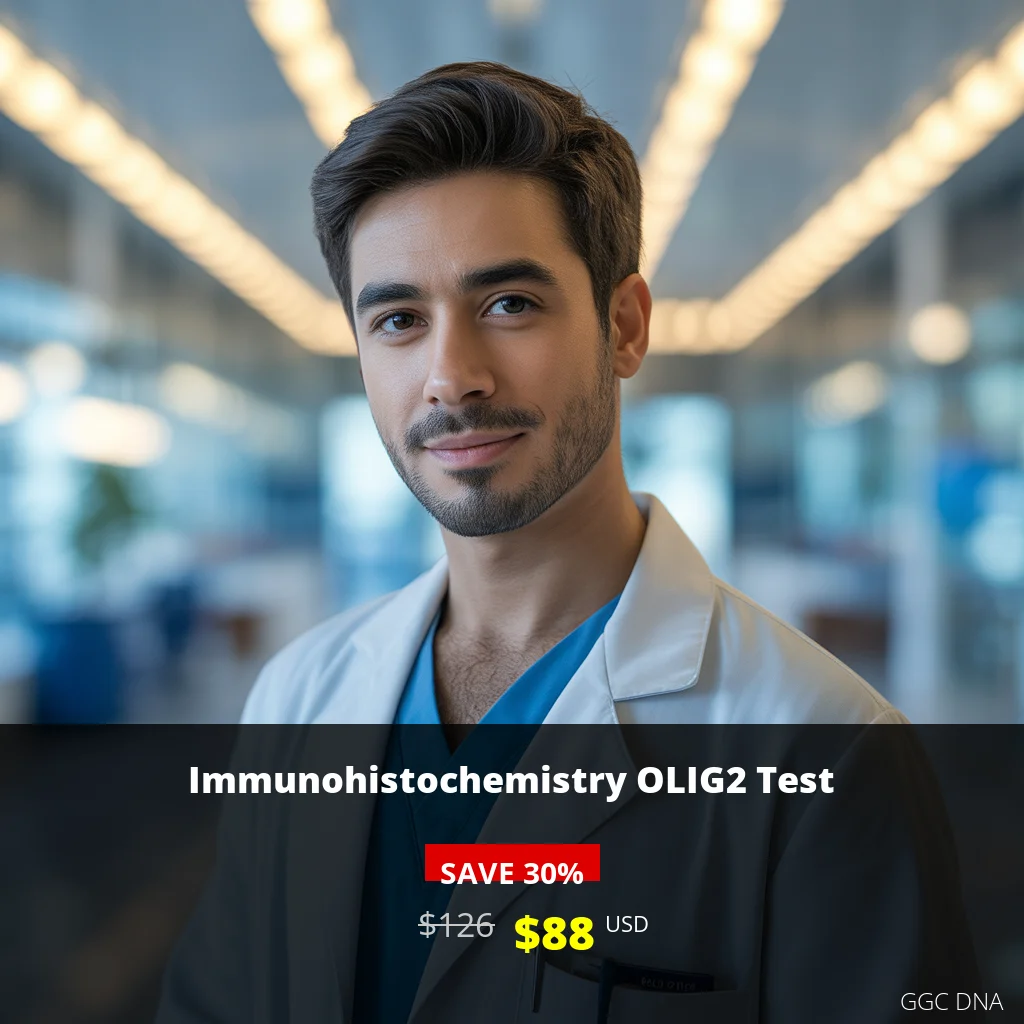Immunohistochemistry OLIG2 Test
Comprehensive Introduction to OLIG2 Testing
The Immunohistochemistry OLIG2 Test represents a cutting-edge diagnostic approach in modern pathology, specifically designed to detect the presence of OLIG2 (Oligodendrocyte Transcription Factor 2) protein in tissue samples. This specialized test plays a crucial role in the accurate classification and diagnosis of central nervous system tumors, particularly gliomas and oligodendrogliomas. As a transcription factor expressed in oligodendrocyte lineage cells, OLIG2 serves as a valuable biomarker for identifying tumor origin and differentiation patterns.
This advanced immunohistochemical technique utilizes specific antibodies that bind to the OLIG2 protein, creating visible staining patterns that pathologists can analyze under microscopy. The test’s importance extends beyond mere tumor identification—it provides essential information about tumor behavior, potential treatment responses, and overall prognosis, making it an indispensable tool in neuro-oncology and diagnostic pathology.
What the OLIG2 Test Measures and Detects
The Immunohistochemistry OLIG2 Test specifically measures the presence and distribution of the OLIG2 protein within tissue samples. This transcription factor is primarily expressed in:
- Oligodendrocyte precursor cells
- Developing and mature oligodendrocytes
- Certain types of glial tumors
- Neural stem cells in specific contexts
The test detects nuclear staining patterns that indicate OLIG2 protein expression, helping pathologists distinguish between different types of brain tumors. High levels of OLIG2 expression are particularly characteristic of oligodendrogliomas and other glial neoplasms, providing critical diagnostic information that complements traditional histological examination.
Key Detection Capabilities
- Identification of oligodendroglial differentiation in tumors
- Differentiation between astrocytomas and oligodendrogliomas
- Detection of tumor cells with oligodendrocyte lineage
- Assessment of tumor grading and classification
Who Should Consider the OLIG2 Test
This specialized diagnostic test is recommended for patients presenting with specific clinical scenarios and symptoms that suggest central nervous system involvement:
Clinical Indications
- Patients with suspected brain tumors based on imaging studies
- Individuals with neurological symptoms including persistent headaches, seizures, or cognitive changes
- Patients with abnormal MRI or CT scan findings suggestive of glial tumors
- Cases where tumor classification is uncertain from routine histology
- Patients requiring differential diagnosis between different glioma subtypes
Symptoms That May Warrant Testing
- Unexplained neurological deficits
- Progressive cognitive impairment
- Motor function changes
- Visual disturbances
- Seizures of recent onset
- Personality or behavioral changes
Significant Benefits of OLIG2 Testing
Choosing the Immunohistochemistry OLIG2 Test provides numerous advantages for both patients and healthcare providers:
Diagnostic Precision
- Accurate classification of brain tumor subtypes
- Enhanced differential diagnosis capabilities
- Improved confidence in pathological assessment
- Better understanding of tumor biology and behavior
Clinical Management Advantages
- Informed treatment planning based on tumor type
- Predictive information about treatment response
- Prognostic insights for patient outcomes
- Guidance for targeted therapy approaches
Patient-Centered Benefits
- Reduced diagnostic uncertainty
- Personalized treatment strategies
- Improved communication about diagnosis and prognosis
- Better preparation for treatment journey
Understanding Your OLIG2 Test Results
Interpreting OLIG2 test results requires professional medical expertise, but understanding the general principles can help patients better comprehend their diagnosis:
Positive OLIG2 Staining
Strong nuclear staining typically indicates:
- Likely oligodendroglial differentiation
- Possible diagnosis of oligodendroglioma
- Other OLIG2-positive glial tumors
- Specific tumor subtypes with oligodendrocyte features
Negative OLIG2 Staining
Absence of staining may suggest:
- Non-oligodendroglial tumors
- Astrocytic differentiation patterns
- Other central nervous system neoplasms
- Specific tumor types that typically lack OLIG2 expression
Interpretation Context
It’s crucial to understand that OLIG2 results are interpreted in conjunction with:
- Clinical history and symptoms
- Radiological findings
- Other immunohistochemical markers
- Traditional histological features
- Molecular testing results when available
Test Pricing and Availability
| Price Type | Amount (USD) |
|---|---|
| Discount Price | $88 |
| Regular Price | $126 |
Turnaround Time
- Sample Acceptance: Daily by 6 PM
- Report for Block: 5 days
- Tissue Biopsy: 5 days
- Tissue Large Complex: 7 days
Sample Requirements
Submit tumor tissue in 10% Formal-saline OR Formalin fixed paraffin embedded block. Ship at room temperature. Provide a copy of the Histopathology report, Site of biopsy and Clinical history.
Nationwide Availability
We have diagnostic branches conveniently located across the United States, serving patients in all major metropolitan areas including New York, Los Angeles, Chicago, Houston, Phoenix, Philadelphia, San Antonio, San Diego, Dallas, San Jose, and many other cities. Our network ensures accessible, high-quality diagnostic services regardless of your location.
Take Action for Your Health
Don’t let diagnostic uncertainty delay your treatment journey. The Immunohistochemistry OLIG2 Test provides the clarity needed for informed medical decisions and personalized care planning. Our team of experienced pathologists and oncology specialists are ready to assist you with comprehensive diagnostic services.
Book your Immunohistochemistry OLIG2 Test today by calling our dedicated healthcare line at +1(267) 388-9828 or schedule your appointment through our online booking system. Take the first step toward accurate diagnosis and effective treatment planning with confidence in our expert diagnostic capabilities.
Our commitment to excellence in diagnostic pathology ensures that you receive the most accurate, timely, and comprehensive testing services available. Trust General Genetics Corporation for your specialized diagnostic needs and experience the difference that expert care can make in your healthcare journey.







